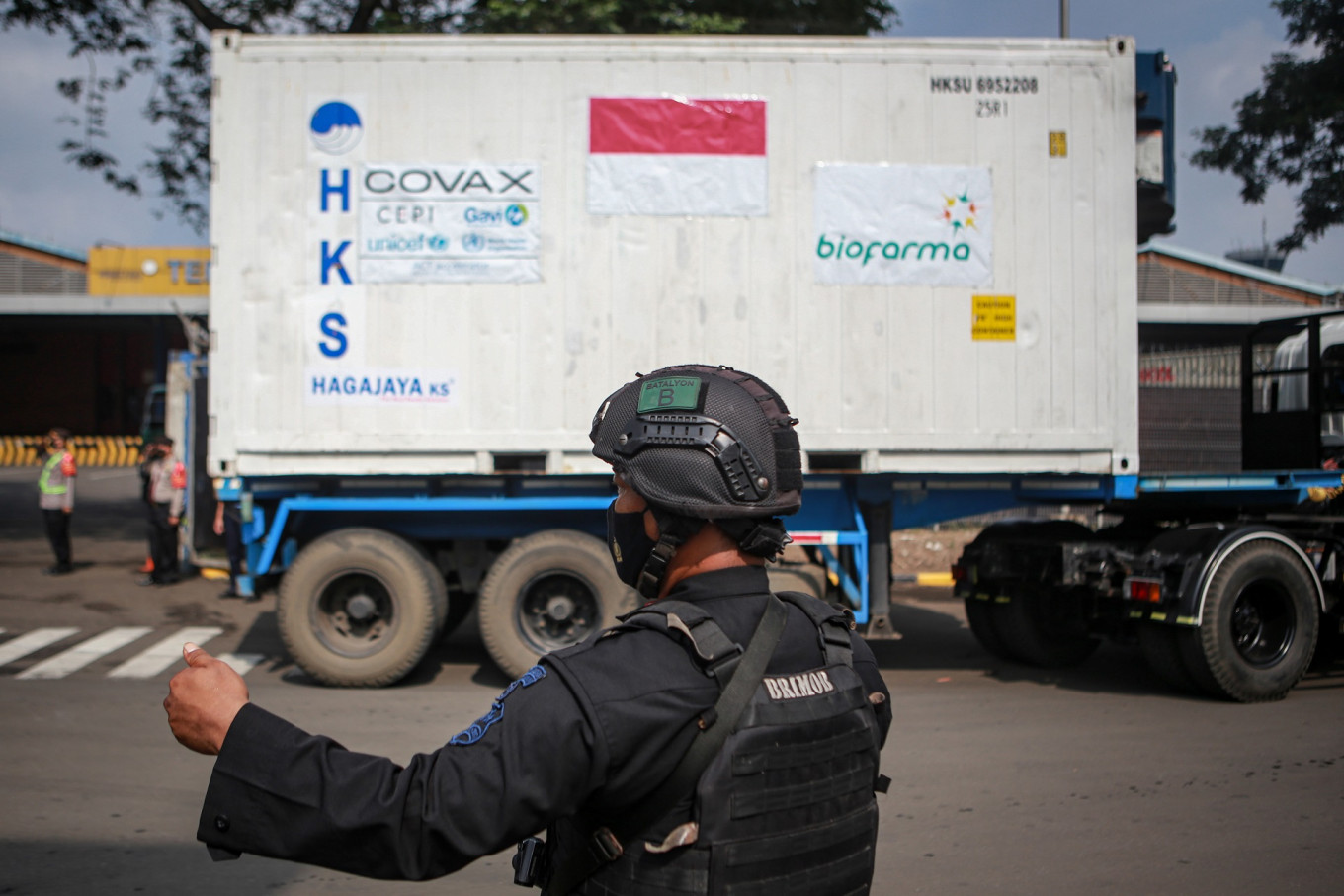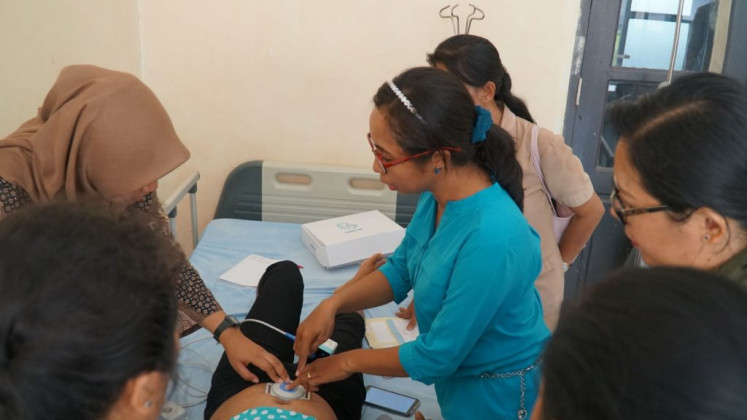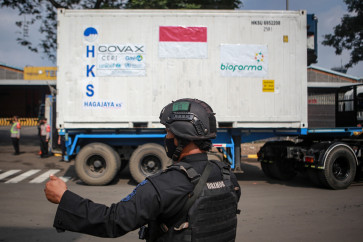Popular Reads
Top Results
Can't find what you're looking for?
View all search resultsPopular Reads
Top Results
Can't find what you're looking for?
View all search resultsG20 presidency and Indonesia’s diplomacy
The main challenge for Indonesia's G20 presidency is to ensure vaccines are distributed evenly to all countries.
Change text size
Gift Premium Articles
to Anyone
 A police officer stands guard near a shipping container containing COVID-19 vaccines produced by AstraZeneca at Soekarno-Hatta International Airport in Tangerang, Banten, on May 8, 2021. Indonesia received 1.3 million doses of the AstraZeneca vaccine under the COVAX facility, a multilateral effort that aims for equal global access to vaccines. (Antara/Fauzan)
A police officer stands guard near a shipping container containing COVID-19 vaccines produced by AstraZeneca at Soekarno-Hatta International Airport in Tangerang, Banten, on May 8, 2021. Indonesia received 1.3 million doses of the AstraZeneca vaccine under the COVAX facility, a multilateral effort that aims for equal global access to vaccines. (Antara/Fauzan)

In his remarks upon unveiling Indonesia's Group of 20 presidency, President Joko “Jokowi” Widodo emphasized three main priorities: inclusive health care, digital-based transformation and the transition to sustainable energy.
During its presidency, which started Dec. 1, Indonesia wants members of the world’s 20 largest economies to take concrete steps to realize the three priorities beyond rhetoric and ceremonial manner. The challenge for Indonesia is therefore how to construe the G20 presidency in the perspective of diplomacy and foreign policy.
The big theme of Indonesia’s G20 presidency – recover together, recover stronger – carries an important message, which is intertwined with the dynamics of current international politics. This, for example, is manifested in the priority goal of inclusive health care, which came on the heels of feuds among countries since the early days of the pandemic.
The pandemic has witnessed at least three dynamics that affect the mood of international politics. First, when COVID-19 began to spread globally, the United States and China accused each other of being the origin of the wretched virus.
Undoubtedly, COVID-19 has intensified the global power rivalry, which takes shape not only in diplomatic maneuvering, particularly in medical equipment and vaccines supplies, but also penetrates into the realm of ideology. When the West was grappling with the COVID-19 spread in mid-March 2020 – only three months after the discovery of the coronavirus – China declared victory over the pandemic.
China has built a grand narrative that it has succeeded in defeating COVID-19 in a unified, strong, effective and efficient way, thanks to a single party political system, as against liberal democracy, which is considered slow, noisy and panicked in making decisions.
In the context of values and ideals, the US-China rivalry is driven by ideological competition and the system of government: between democracy and authoritarianism (Matthew Kroenig, “The Power Delusion”, Foreign Policy, Nov. 11, 2020). Complex rivalries can hinder international cooperation in fighting the pandemic.


















